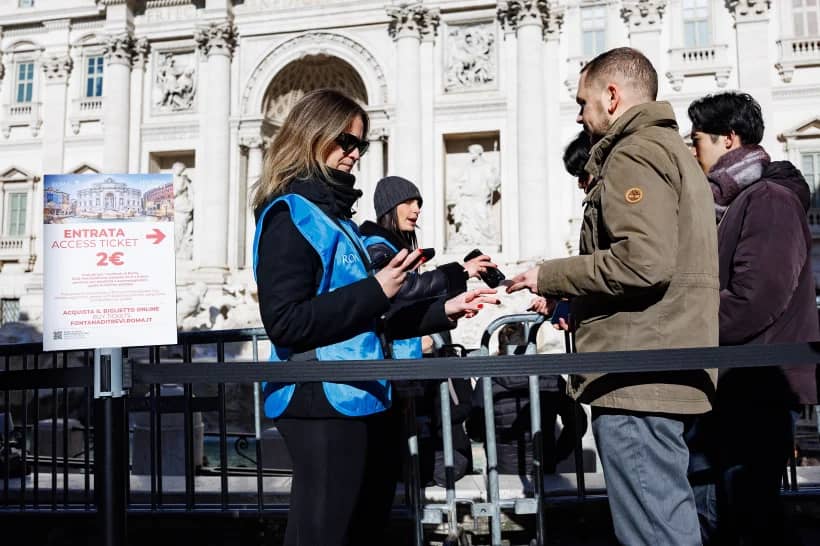ROME – As Russia continues to press forward in Ukraine, currently encircling the Ukrainian capital of Kiev, a prominent Catholic lay group is imploring that the city be spared.
Italian layman Andrea Riccardi, founder and leader of the Rome-based Community of Sant’Egidio, published a manifesto Friday titled, “An appeal for the salvation of Kiev,” in which he called for an immediate ceasefire and proposed that the Ukrainian capital of Kiev be declared an “open city,” meaning not occupied or defended by military forces and not allowed to be bombed under international law.
In his manifesto, Riccardi lamented that Kiev, “a capital of three million inhabitants, in Europe, is today a battlefield.”
“The civilian population, defenseless, lives in a condition of danger and terror,” while seeking cover in underground shelters, he said, noting that the weakest, members of society, “from the elderly to children, to the homeless, are even more exposed. There are already the first civilian victims.”
Founded in 1968, the Community of Sant’Egidio has long been active in ecumenical and interfaith dialogue, conflict resolution and anti-poverty efforts, and is widely seen to enjoy the favor of Pope Francis.
Given Kiev’s rich historic cultural patrimony and numerous World Heritage Sites, Riccardi said neither European nor Russian culture would be the same without the city.
Kiev is “a sanctuary city” for Christians, and especially Orthodox Christians, from all over the world, he said, adding, “The history of faith of the Ukrainian, Belarusian and Russian peoples began in Kiev. Ukrainian and Russian monasticism was born in Kiev.”
As a place with ancient monasteries, such as the one overlooking the Dnieper River, which has been a pilgrimage destination and place of prayer for thousands of years, “Kiev is a precious city for the whole Christian world,” Riccardi said.
“After Sarajevo, after Aleppo, we cannot assist again in the siege of a big city,” Riccardi said. “The inhabitants of Kiev are asking for a jolt of humanity,” he said, insisting that “its cultural heritage cannot be exposed to the risk of destruction. The sanctity of Kiev for the Christian world demands respect.”
He appealed to leaders involved “to refrain from the use of weapons” in Kiev, and to “declare a cease-fire in the city, to proclaim Kiev an ‘open city,’ not to strike its inhabitants with the violence of weapons, not to violate a city to which the whole of humanity looks today.”
“May this choice be accompanied by the resumption of a path of negotiations to achieve peace in Ukraine,” he said, and invited others to adhere to this manifesto.
The Russian military invaded Ukraine early Thursday morning, launching bomb and missile attacks throughout the country, including near Kiev. As of Friday night, reports indicated that shelling and artillery blasts could be heard on the outskirts of Kiev as Russian troops advance toward the city.
Ukrainian President Volodymyr Zelensky, who has been making numerous calls to European and NATO leaders seeking support, has reportedly refused an offer from United States officials to help him leave Kiev, vowing instead to remain and fight.
Since the Russian invasion began, prayer vigils and marches for peace have been held throughout the world, including in Russia.
On Friday, Pope Francis made a rare breach of protocol by leaving the Vatican and visiting the Russian Embassy to the Holy See located on the Via della Conciliazione, the main street leading up to St. Peter’s Square.
He spent around half an hour in conversation with Russian Ambassador to the Holy See, Alexander Avdeev, to “convey his concern for the war.”
Speaking to Italian news organization SIR, the official news agency of the Italian bishops, the Archbishop of Moscow and president of the Russian Catholic Bishops Conference, Paolo Pezzi, called the pope’s visit “a beautiful sign.”
Pezzi said the Catholic bishops of Russia have sent a letter out to their faithful warning that what is unfolding “can make us throw in the towel, can put us in disagreement,” insisting that instead, “this is precisely the moment in which it is necessary to intensify prayer and fasting.”
“It is necessary not to think that we cannot do anything. We can do much, and this much is prayer and fasting,” he said.
Pezzi stressed the need for reconciliation, saying one of the biggest risks at the moment, along with discouragement, is that “a certain tendency to cynicism wins, and instead, Christ has already won for us.”
“This is our Christian hope, this is what the pope invites us to do,” he said.
In the letter, the bishops told faithful that “we, like all of you, are deeply shocked that, despite enormous efforts at reconciliation, the political conflict between Russia and Ukraine has turned into armed confrontation.”
This confrontation, “brings death and destruction and threatens the security of the entire world,” they said, saying the two countries are united not only by a shared history, but “also a great common suffering that has fallen upon us in the past due to the madness of war.”
“Our peoples deserve peace, not only as the absence of war, but as a peace that consists in a firm determination to respect other peoples, other countries, and their dignity,” the bishops said.
Those who are responsible for the military escalation, they said, “will have to strictly account for the military actions they have undertaken. After all, the course of future centuries largely depends on their current decisions.”
Follow Elise Ann Allen on Twitter: @eliseannallen










